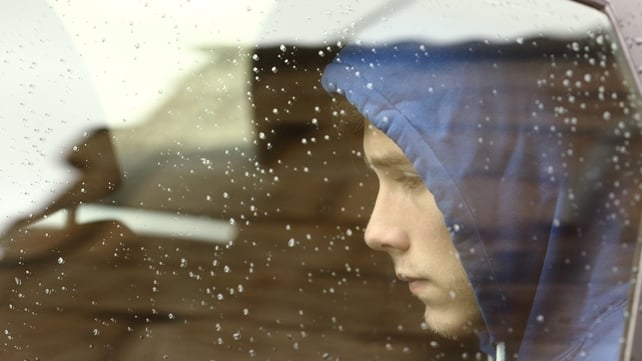Listening to Today with Sean O’Rourke [on RTÉ Radio 1] last Friday, I was struck by something Fr. Tony O’Riordan, parish priest of Moyross in Limerick, said. Last week alone, Fr. O’Riordan had ‘intervened’ in the cases of three men in his parish who were suicidal. Not surprisingly, two of these cases were due to stresses that were thought to be housing-related, Fr. O’Riordan said.
We all know that suicide rates in Ireland are too high.
We also know that there is still a stigma attached to mental illness that often prevents people who experience it from sharing their problems and seeking help. Men and boys, in particular, are prone to keeping their feelings and thoughts bottled up.
So how did Fr. O’Riordan know that an intervention was needed in these three cases?
There is a preconception that people experiencing mental distress confide in certain ‘types’ of individuals or services: the parish priest, the GP, mental health help lines… some may never share the burden.

However, a lot of people who begin to feel ‘not OK’ will tentatively confide in a family member or friend. Perhaps not ‘coming out with it’ and saying “I’m depressed” - or whatever the case may be - but there are subtle hints that many people give out, even subconsciously, in the hope that somebody will recognise their pain and step forward to help. However, despite many wonderful campaigns to get rid of the stigma of mental illness and to let people know that “it’s OK not to feel OK; and it’s absolutely OK to ask for help” (that particular motto belongs to suicide awareness campaign, Cycle Against Suicide), asking for help and admitting to yourself - let alone anyone else - that you’re not coping, is a very difficult thing to do.
So, perhaps there’s an onus on us, as a society, to arm ourselves with the tools needed to recognise when someone needs help, and intervene if necessary until professional help is sought. This is where Mental Health First Aid (MHFA) comes in.
Developed in Australia in 2001, MHFA is designed to teach evidence-based mental health first aid strategies to members of the public. The accredited course is now available in 24 countries around the world including the USA, Bermuda, Finland, Malta, Saudi Arabia, Japan… and Ireland.
The course teaches many skills such as how to recognise signs and symptoms of mental health problems, awareness of the professional services available, and skills of how to behave in a crisis situation, and simply, but crucially, how to listen non-judgmentally.
Clinical psychologist Lisa Shanahan began delivering a model of the MHFA course in Ireland in 2006 and taught it here until recently, when Saint John of God Hospital in Dublin did a deal with the originator of the programme to adapt and roll out the course nationally as MHFA Ireland, with the full support and accreditation of MHFA International.
Lisa Shanahan told RTÉ Lifestyle, “It’s not just for the professionals to manage; it's everyone's business. MHFA is designed to get people talking and stepping forward to assist, rather than stepping back to avoid the issue.”
Donal Scanlan, project manager of MHFA Ireland, thinks that people have become more comfortable with discussions around mental illness, but that we still have a way to go.
“I do believe we have gotten better at talking about mental health in Ireland, but still just good at talking about 'other people’s' mental health,” Donal told RTÉ Lifestyle. “We could do so much better at talking about our own and minding our own.”
Both Donal and Lisa told me that they believe there is a lot of good work being done to combat mental health stigma, but that the sector is still stretched and under-resourced.
“I believe we should all work together to demand a change to that situation,” commented Donal.
“That being said,” he added, “I think there is an opportunity for society to effect change at community, family, workplace or street level; to become more aware of when someone is having mental health challenges; to be more supportive and encouraging; to not be directive, prescriptive or ignorant of recovery options but instead be confident, educated and provide a listening, caring ear that can make all the difference to someone who needs hope in their lives. I believe this is where MHFA can make a difference. In our schools, colleges, workplaces and communities along with our Gardai, prison services, or youth workers. The list of who could benefit from MHFA is endless.”
Over a million people worldwide are now trained in the MHFA programme. Many of the 24 countries that teach the programme have even incorporated it into their national mental health policies.
To find out more about MHFA visit here



